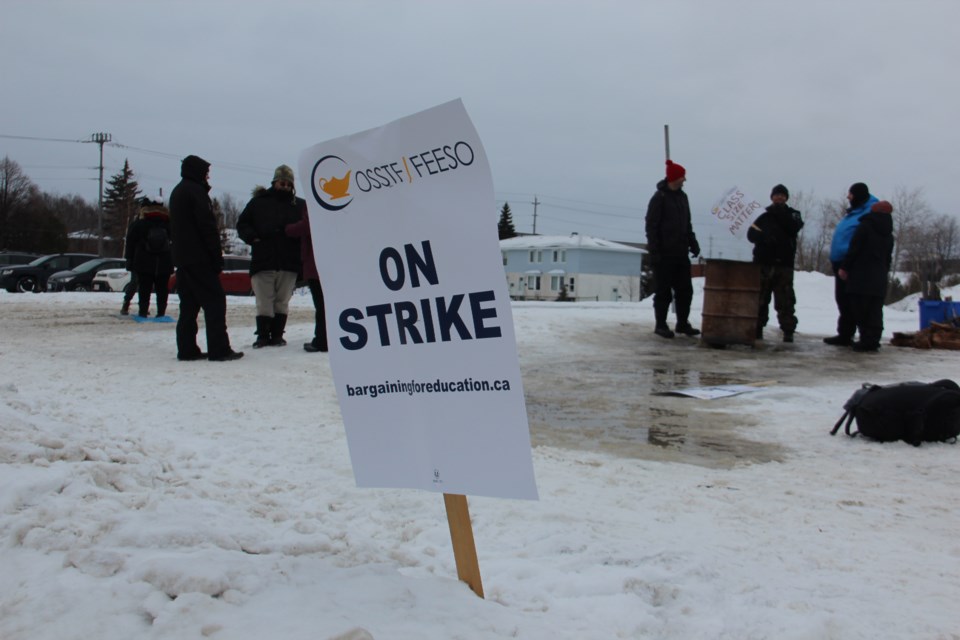As the latest in a series of rotating strikes by the Ontario Secondary School Teachers' Federation (OSSTF) hit Greater Sudbury schools Wednesday, other education unions in the province are also ramping up strike action.
All classes at both French boards and high school classes with the Rainbow board were cancelled Wednesday. OSSTF members also walked off the job across the province one day last month.
“Everybody was at different points as far as their negotiation timelines ... now everything is coming to a head,” said Eric Laberge, president of OSSTF District 3, who spent Jan. 15 visiting his members on the picket lines in the Sudbury area.
“Inevitably that's probably going to lead to more disruption province-wide, probably more pressure being applied to the government to come to the table, be reasonable with their demands, and come to a negotiated settlement.”
The AEFO (Association des enseignantes et des enseignants franco-ontariens, representing French-language teachers) announced this week that it will start engaging in “work to rule,” as several other education unions are already doing.
The Elementary Teachers' Federation of Ontario (ETFO) is holding a one-day strike Monday, Jan. 20, in the Toronto, York Region and Ottawa-Carleton areas.
The next major job action that impacts Greater Sudbury will be on Tuesday, Jan. 21, when the Ontario English Catholic Teachers' Association (OECTA) will hold a province-wide one-day strike.
The OSSTF joins OECTA on the picket lines Jan. 21 in nine school boards, although not in the Greater Sudbury area.
Contract talks between the education unions and province appear to have mostly stalled, with only AEFO at the bargaining table this week.
Meanwhile, Education Minister Stephen Lecce announced Wednesday the government will compensate parents affected by rotating strikes.
Parents whose kids aren’t yet enrolled in school but attend school-based child-care centres affected by the strikes will get the most money, while those whose children are in grades 1 through 7 will get the least.
Parents of secondary school students won’t get any funding, but those with children with special needs up to age 21, will get $40 per day.
ETFO president Sam Hammond slammed the government plan, saying the province is trying to bribe parents with their own money, and that Lecce's energy would be better spent at the bargaining table.
Asked where he thinks all of this will lead, Laberge said he really has no clue.
“Both sides, rightly or wrongly, have dug in their heels,” he said.
However, he said internal polling done by the OSSTF shows the public is on-side with the union's job action with a ratio of 3:1.
“They believe that the job action that we're doing is less detrimental than what the cuts could mean to the education system once fully implemented,” Laberge said.
Teachers were angered when the government announced that average high school class sizes would increase and four e-learning courses would be mandatory for graduation.
Lecce has repeatedly said the key sticking point is compensation, with the union demanding a roughly two-per-cent wage increase and the government offering one per cent.
“It is very frustrating that we cannot get to a negotiated settlement,” Laberge said.
“Our position is very clear, that the cuts that the government proposed back in March, we want them completely removed.
“Not only would they mean the removal of thousands of education workers from the classroom, including support staff, but it also will affect the quality of education that students are currently getting or have been getting for the past several decades.”
-With files from Canadian Press
